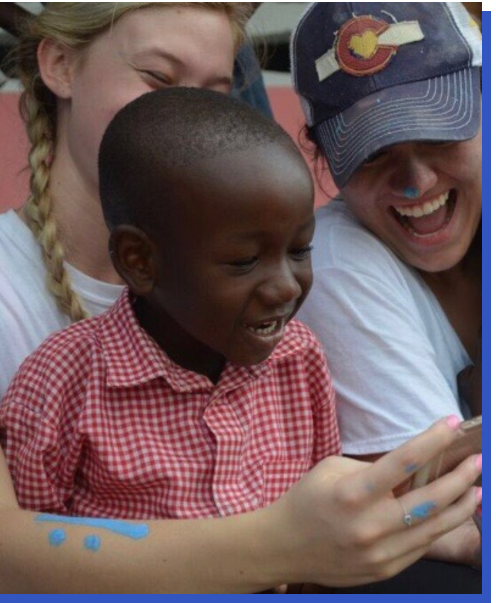
Become A Road Warrior!

Travel with us to Haiti and experience the communities we work with firsthand.
This trip offers a unique window into our comprehensive services in Nordette and Mathone. We will visit the schools, do projects with children in the communities and build sustaining relationships with community members. We'll also explore the beauty of Haiti, discovering why the island is called the "Pearl of the Caribbean."
HELPFUL Documents:
WHAT TO EXPECT ON ANY OF OUR TRIPS
Community:
Our team is eager to introduce you to life in Haiti! You’ll meet local community leaders and school leadership. You’ll visit historical sites and places of incredible natural beauty. And, of course, you’ll meet children in our schools and communities.
Challenge:
Traveling to developing countries like Haiti is a very difficult experience for many Americans. You'll have a range of emotions and experiences that will challenge you emotionally, mentally and physically.
Culture:
You will experience the kindness, openness, and hospitality so common within Haitian culture. You’ll try local cuisines and visit local attractions. You will observe both the beauty and struggle of daily life while you travel through the city and countryside.
Weather:
Come prepared for a healthy dose of sunshine! Haiti’s climate is tropical, so average daily temperatures range from the high 60s to the low 90s, and humidity is typically high. November – March is Haiti’s dry season, while April – October is the rainy season. Haiti lies within the Caribbean’s hurricane belt, so tropical storms and hurricanes are possible from June – October.
Passports:
Your passport must be valid for at least 6 months following your arrival and include at least one blank page. To renew or apply, visit passports.state.gov. You do not need to obtain a short-term visa. There is no need to obtain a short-term visa to enter Haiti, but a $10 entry fee is required upon landing.
Luggage Policy:
The Road to Hope will pay for all necessary checked baggage (donations, video production equipment, supplies needed for the group trip). Everyone should have their personal items (clothes, toiletries, personal items) into 1 carry-on bag only. Folks are welcome to bring a checked bag for personal items, but they should pay that cost themselves, and it should be only 1 checked bag of personal items total per person for storage and transportation and security purposes.
Vaccinations:
We recommend following the CDC’s guidance on vaccines and medicines as you prepare to travel. For more information about traveling to Haiti, please refer to the CDC’s website.
Helpful Phrases:
French and Haitian Creole are both official languages, but Haitian Creole is the most universally understood. Of course, translators will be available to help you converse, but in our travel tips, provided to all travelers, we'll give you a few phrases if you’d like to practice!

Our Focus
We help children, families, and communities break the cycle of poverty by empowering people of all ages to dream, aspire and achieve.
-
Education
A solid foundation in education is key to success later in life. Your donation funds teachers, books and extracurricular activities to help get youngsters off to the right start.
-
Music & the Arts
Music & the arts can enrich education, heal wounds, bring happiness and transform lives. Contributions support the Haiti Youth Orchestra and Haitian artisans.
-
Clean Water
Clean water and good sanitation are the basis of good health in any community. Less than half of Haitians in rural areas (like the communities The Road to Hope works) have access to clean water.